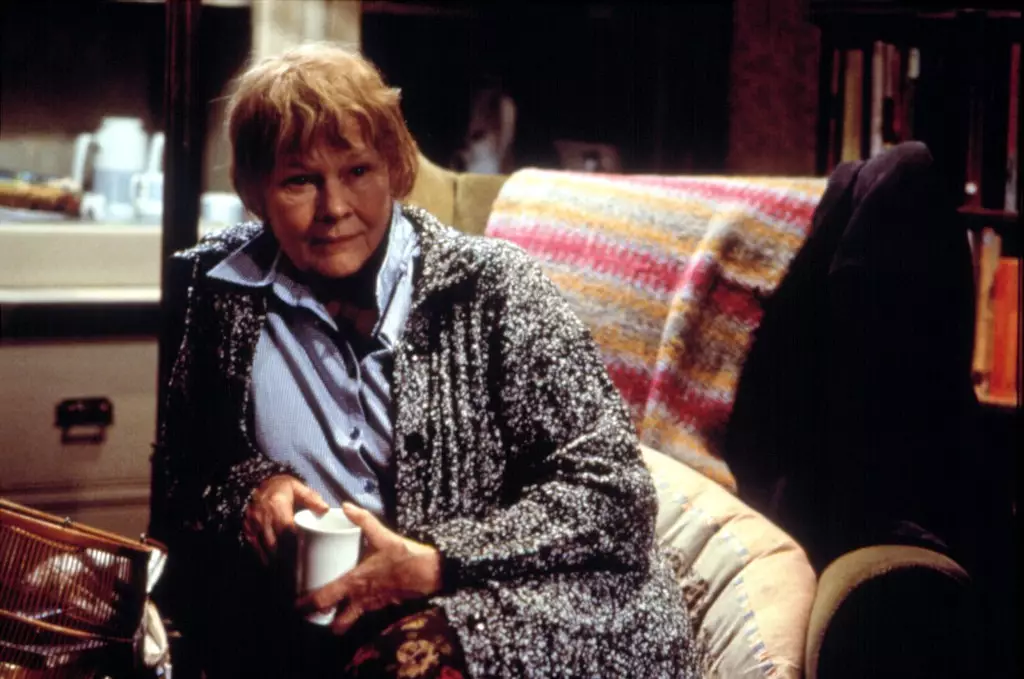The clock ticks mercilessly for those suffering from dementia, an insidious affliction that steals memories and, ultimately, identities. In the UK, nearly a million individuals are grappling with this disease, with Alzheimer’s being the most recognized form. However, alarmingly, one in three of these individuals remain undiagnosed, living in a fog of uncertainty. This precarious situation raises the question: why is the National Health Service (NHS) failing to provide timely and accurate diagnoses for such a grave condition? This is an inquiry not just for those in positions of authority but also for every thoughtful citizen concerned about the welfare of their community.
Dame Judi Dench, a celebrated actress whose performance as Iris Murdoch in the film “Iris” poignantly depicted the ravages of Alzheimer’s, has taken a laudable step forward in amplifying the voices of those affected. Dench’s association with Alzheimer’s Research UK’s campaign, “Dementia Unseen,” emphasizes the urgent need for change. Drawn from her personal insights, the campaign seeks to push for a systematic overhaul that allows earlier diagnoses within a defined timeframe. The fact that some individuals in England may wait up to a year to receive answers is a chilling diagnostic catastrophe that resonates through the corridors of the NHS.
The Government’s Failure: A Politically Charged Situation
The recent announcement from the government about shelving the target of diagnosing 66.7% of individuals over 65 with dementia starkly illustrates an unsettling reality in political priorities. While the statistics of dementia continue to rise—the projected 43% increase by 2040 is a staggering figure—the bureaucratic machinery appears to grind on, indifferent to the plight of those in need. The implications are clear: there is a disconnect between policy-making and the daily struggles faced by citizens.
With public institutions often marred by red tape and inefficiency, this delay in diagnosing dementia takes a toll not solely on the individuals but also on their families. Dench poignantly remarked that “dementia doesn’t just take away memories – it can take away identity, connection, and the future you thought you had.” This potent observation encapsulates the emotional battleground that families face when a loved one’s cognitive decline remains unrecognized and untreated. The lack of clarity feeds into an already chaotic environment marked by confusion and heartbreak.
Beyond Diagnosis: The Fight for Dignity and Support
The fight for a timely dementia diagnosis is not only about expedience; it fundamentally revolves around the dignity and quality of life for those affected. A diagnosis may seem like a mere label to some, but it opens the door to a plethora of possibilities that patients desperately need. Those who are diagnosed earlier can access crucial resources, participate in research initiatives, and make informed decisions about their life’s trajectory. Without diagnosis, families are robbed of the chance to plan for the future, leading to a gut-wrenching mix of emotional and logistical crises.
Hilary Evans-Newton, the Chief Executive of Alzheimer’s Research UK, reinforces this sentiment by stating that “everyone who has dementia should have the right to know the disease…early enough to get treatments that help.” This is not just a matter of individual rights; it’s a societal obligation. The emotional weight borne by families during these prolonged waiting periods compounds their distress, creating a need for systemic change that extends far beyond mere documentation or awareness campaigns.
As Dench and many others work tirelessly to shine a spotlight on this tragic issue, the imperative remains clear: we must advocate for a healthcare system that holds itself accountable for the timely care of its citizens. In an age where advances in medical sciences have promised more, the devastating delays reflect an unsettling reality—what is the worth of our advancements if they remain inaccessible to those who need them the most?
While many call for governmental action, it is essential that ordinary citizens also stand up and demand reform. The moment has arrived for proactive measures aimed at systemic change, so that dementia, the thief of identities, does not continue to linger undiagnosed, unnoticed, and unchallenged.

